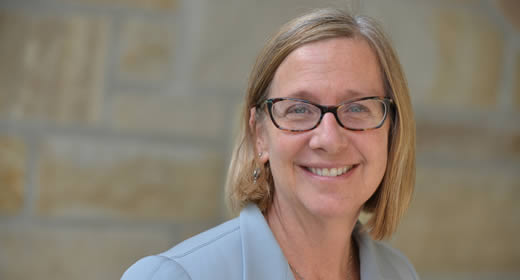
The Ford School is delighted to announce that a number of faculty members will join our community this fall. To introduce them to the Ford School and University, we’re running weekly Q&As throughout the summer that touch on their policy and personal interests alike.
Here’s Paula Lantz on what she loves about “pay for success,” why she’s enthusiastic about the Ford School, what she’ll be teaching, and what she does for fun.
Q: What are you working on these days?
Lantz: Much of my research focuses on public policy approaches to improving population health and reducing health disparities that are based on social class, race, and gender. One great interest to me right now is the potential of “Pay for Success” financing to address public health and other social issues. The pay for success model (also referred to as social impact bonds) mobilizes financing from private investors to fund innovative interventions that can save the government money. What I love is that pay for success bypasses revenue-strapped government agencies by mobilizing the resources of socially-minded private investors and philanthropists. If the intervention results in demonstrated savings to the public sector, the government agrees to share some of those savings with the investors who took the risk. If the expected outcomes and cost savings are not realized, then the private investor has no return on the investment. In other words, the investor assumes all the risk and the government only pays for success.
I’m currently the lead investigator on a pay for success study funded by the Department of Health and Human Services, Assistant Secretary for Planning and Evaluation. Our team is investigating the potential of private investments in prevention programs that would save Medicaid, Medicare, and other health programs money. Some of the prevention programs we are assessing include home-based childhood asthma interventions, diabetes prevention, early childhood home visits, supportive housing, and increased education regarding long-acting reversible contraceptives. Although the pay for success approach is not a magic bullet for public health policy, I believe this study will identify some areas in which this is indeed a fruitful and positive policy path. It’s all about getting more value out of our investments in health, and improving the health and wellbeing of many people along the way.
Q: Tell us about a policy you love, hate, or find intriguing.
Lantz: In my work I’m often attempting to show how health care is only one of many factors that influence health. In the United States, we’ve mistakenly conflated health and health care. But these two things are not the same. And it’s the social determinants of health—such as income, education, food security, housing, environmental factors, neighborhood conditions, racism, psychosocial exposures, etc.—that matter most for individual and population health. One of the many reasons I’m excited about being in the Ford School is that I’m eager to work with and learn from colleagues who do important policy work on the non-medical determinants of health.
Q: What courses do you plan to teach in the coming year?
Lantz: I will be teaching two courses my first year. In the fall, I’ll teach an undergraduate course on health policy innovation. This course will focus on critical thinking and policy analysis skills that will allow students to create and assess innovative policy approaches to domestic and global health issues. I’m hoping that the course will be attractive to students who wish to work in this area as “social entrepreneurs,” and will introduce them to the amazing potential for innovative public policy to do good in the world. I’ll also be teaching a graduate course on population health policy during the winter term. This course will expose students to past, current and future health and social policies that impact the distribution of health within and across populations. The course will emphasize advanced policy analysis skills and communication skills that are important in the policy world.
Q: What do you do for fun?
Lantz: For fun and for health, I’m a gym rat and I also like to run. I’m one of those strange people who likes to get up very early and go to boot camp exercise class, although I will admit that some days it’s a painful process. My main passions are cooking and traveling. There’s nothing I like better than learning about different cuisines through travel, and then cooking delicious and interesting food for people I love. I’ve acquired some good skills in Thai, Spanish and Mexican cuisine that I would love to share.
I also like spending time with my adult children, Alex (age 27) and Jakob (age 24). They have grown into very interesting, inspiring and fun young men, and I cherish every moment I can spend with them.
Q: Favorite quote?
Lantz: Yes, an African proverb. “If you want to go fast, go alone. If you want to go far, go together.”
Check out Paula’s bio and head over to Twitter to welcome her back to the University of Michigan and, for the first time, to the Ford School.